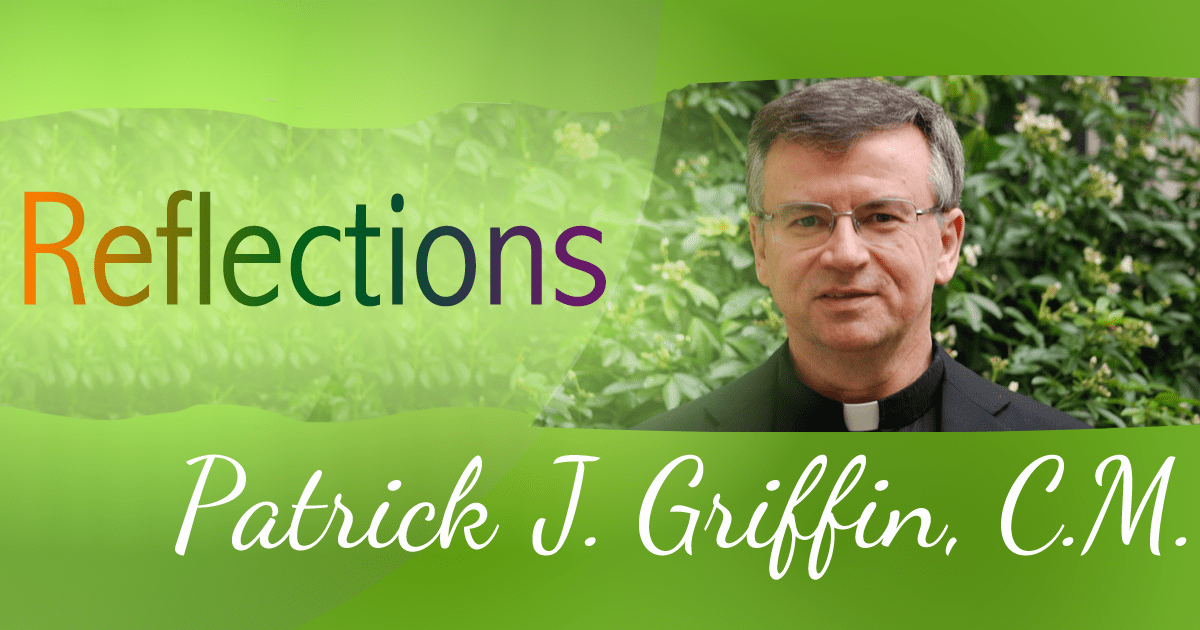A Vincentian View: A Man Had Two Sons
In Luke’s Gospel, the parable of “The Prodigal Son” follows those of the lost sheep and the lost coin (Lk 15:1-10). The other stories might suggest that the reading can stop after the father welcomes the younger son home (the other parables end with the celebration), but that tells only half the tale in this most famous of Jesus’ stories. Listen carefully (again) to the first line of the parable: “A man had two sons.” Until the account of both sons receives a hearing, the telling cannot be completed or properly understood. This narrative concerns an entire family and not simply a parent-child relationship. In this reflection, let me draw a simple lesson from the relationship between the two brothers.
Beginning with the younger brother, we observe that he never mentions his older brother! If all we had was the story of the second son, we would presume that there was no first son. One might consider that the feelings of his older brother were of no concern to him. That would certainly fit with the self-centered character of his actions. He does not even consider the effects of his doings on his sibling. This elder brother holds no place in his worldview.
When we listen to the account of the older brother, however, we find an opposing perspective: he cannot stop thinking or talking about his younger brother! Notice how the older brother presumes before his father to know what kind of life the younger son had been leading—“your son returns who swallowed up your property with prostitutes.” The older brother has no doubt what kind of person this younger man is and what he is capable of, and he speaks his accusations boldly and confidently, though without any proof. He also refuses to acknowledge him as his brother, referring to him as “your son” as he speaks to their father.
There is real resentment (hurt?) in the voice of this elder son as he brings forth words that show his anger not simply with the younger son, but with the father! The interplay of the relationships is educational. Notice that the first son does not even address his parent as “Father,” which is something that the second son does confidently.
When we read only the first half of the story concerning the younger son returning to the welcoming arms of his waiting, forgiving and loving father, we can cast ourselves in the role of the repentant child. We know our need for God’s love and our desire to be gathered to his bosom. We can envision ourselves as that prodigal child, as we should! When we read the second half of the story, however, do we change roles? Now, do we assume the place of the older child who bristles at the care lavished on the undeserving sibling? Do we understand, at least on some level, the position of the elder brother and find his accusations have merit? Do the words “It’s not fair” float somewhere in our thinking and reactions? His anger with the father is not totally foreign to us. Do you think some of these same things?
I have found this insight helpful:
“One of the hardest things in the world is to stop being the prodigal son without turning into the elder brother.” (John Ortberg Jr., The Life You’ve Always Wanted)
When we consider our need for forgiveness and repentance, the thoughts and actions of both of these characters may have a place. Vincent and Louise knew how they could grow in a “family.” So should we.
“Cherish, help and bear with one another while showing mutual respect. I ask you, dear Sisters, to act in this way, never complaining or murmuring, not contradicting or nagging one another because, alas! it would be a great pity if you were to offend one another.”(VdP, CCD5, L.1761, To the Daughters of Charity in Warsaw, 20July1654, p. 169)
“I know that we all have faults and I more than anyone. However, the support we owe to one another should prevent us from noticing the weaknesses of our sisters, except if we are able to help them.” (LdM, SW, L355, p. 112)







An illuminating take on this parable